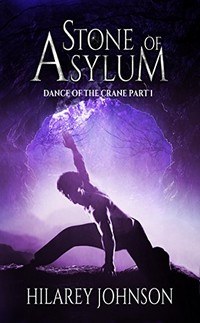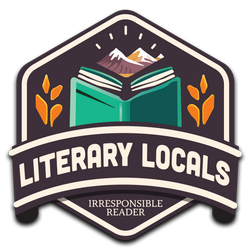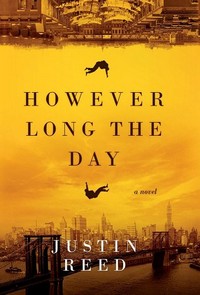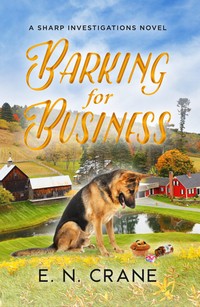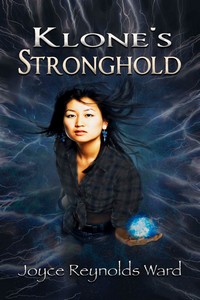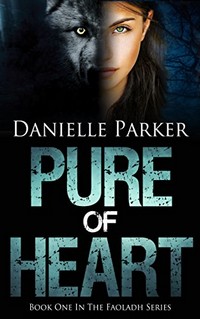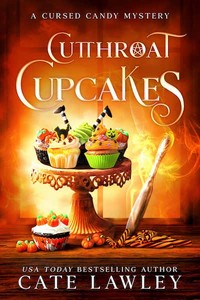Be sure to check back a little later this morning for a Q&A with the author about this book and her writing in general.
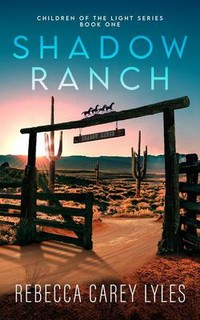 Shadow Ranch
Shadow Ranch
DETAILS: Series: Children of the Light, Book One Publication Date: April 24, 2022 Format: eBook Length: 380 pg. Read Date: August 4-8, 2023

What’s Shadow Ranch About?
So, I knew going in that this book was about a woman who ended up as part of a polygamous cult—so there’s no way that things are going to go well for Kasenia as we meet her. But even if I didn’t know that, after half of a page of dialogue between her and her romantic interest—you know that this guy is a creep. He might as well be named Redd Flagg, the heir of the vast Crimson Banner Estate (actually, I’m going to call him that for the rest of the post, just because).
Quite possibly because Kasenia has no girlfriends or confidantes to help her see how creepy Redd is, she falls for him. And almost instantly, things get worse—he’s a horrible, controlling husband, but she’s trying to make things worse. Then Redd turns on the charm—why don’t Kasenia and her brother come out to his family’s ranch for the weekend? Kasenia drags her younger brother along (he’s on to Redd—at least to a degree) and they head out for a chance to rekindle their marriage.
Of course, his family consists of multiple other wives (none of whom are happy to see her), enough kids to fill a schoolroom, and a few foster kids (there’s an ethnic and language difference between the foster children and Redd’s own). Between a combination of threats, guards, isolation (geographic and technological), and psychological manipulation, Redd has created a family full of people that are (almost entirely) devoted to him, and work themselves constantly to earn money for him and to earn approval from him.
Kasenia is determined to find a way out for herself and her brother—when she discovers that there’s more to Redd’s debauchery and devilry than she’d realized. The stakes are higher than ever—will she be able to find freedom for those he’s a threat to?
A Little More about Redd Flagg
Now I fully realize that when you’ve got someone with megalomaniacal tendencies like Redd, you’re going to find someone with a lot of messed up qualities. No one who deceives and manipulates a young woman into joining his group of wives—and keeps her as one through threat of violence (that he does follow through with to some extent) is in any sense a good guy. Moreover, I know that Lyles did some research and that there are more people like this in the U.S. than anyone wants to think about.
Still, I couldn’t help but think that Redd was too evil. “Like so evil, that you would say it was E-VEEL.” Every time you think you’ve found the depth of his moral void, there’s a new level of despicableness. Yes, that’s a common thing in fiction (or life), but it just felt like Lyles was laying it on a bit too thick.
Manipulative and abusive is enough—you’ve got yourself a true villain right there. But once she starts adding the other crimes that he’s committed and/or planning to commit? I’m not sure the reader or the story needed that.
I Was Uneasy About…
It’s a risky thing (for storytelling reasons and, more importantly, for the risk of blaspheming) to bring God into a work of fiction as an actor in the story. Multiple times characters who are trying to free themselves from Redd will pray and instantly—or quickly—something will happen that could be interpreted as an answer to that prayer. Is it possible for the reader or someone in the text to interpret these happenings as coincidental? Sure. But not one single character does—they all see the good things happening to them after praying as a direct answer to that prayer.
I absolutely am convinced that prayer works—but I don’t think it works like a bunch of kids praying for help getting away from a gunman and suddenly a mountain lion shows up to frighten off the gunman.
Using prayer like that almost turns God into a genie in the bottle—or at least those praying into Magicians with just the right spells ready to get the heroes out of danger.
I absolutely appreciate and celebrate Lyles taking prayer seriously, demonstrating people acting in faith and trust in the Most High with integrity and not turning them into hypocrites or anything. I also think she doesn’t go over the line to treat God as a genie—but she walks right up to that line. It makes me uneasy (at best) to read on several levels, though.
So, what did I think about Shadow Ranch?
Overall, there’s a lot to commend about this book. It reeks of research into situations like this one, it’s full of distinct and clearly drawn characters. Many of these characters are really well-developed and (largely) well-rounded—a mixture of good and bad qualities, understandable motives, and repulsive actions. The tension and the pacing are enough to keep propelling the reader through the twists and make it hard to put down without knowing what happens next.
According to the Internet—and a book I read in grade school (so I’m more inclined to believe it, but not much)—Abraham Lincoln in trying not to say he didn’t like a book said, “People who like this sort of thing will find this the sort of thing they like.” That’s very much what I want to say about this book. Let me rush to say that I did not dislike the book, but it wasn’t for me. I know there’s an audience out there who really get into this kind of thing (The Lifetime Movie Network alone proves that), but you’re not going to count me as part of it.
In a Q&A Lyles did with me months ago, she mentioned that her novels always have a happy ending. That alone kept me reading, just to see how she pulled it off—and there were a handful of times I considered abandoning the book. The ending could’ve been dark. It could’ve been ambiguous. It could’ve ended up in a pretty twisted and sordid way. But no, Lyles stuck with her pledge and provided a happy ending (that’s not too cheesy).
I do think the touch of romance (that didn’t involve Flagg or anything toxic) was a little out of place, and possibly unbelievable—definitely misguided on the part of the characters. But it feels on brand from what I can tell about Lyles’s work, so ignore me.
Again, there are people who will like this sort of book—and more power to them. If you think you’re likely in that camp in any way—read this. I think you’ll be rewarded. If you’re leery of it? I’m not going to tell you to give it a chance—trust your instinct. There are books that I’d approach differently, and encourage people to take a risk. Shadow Ranch isn’t one of those—it delivers what it promises.

This post contains an affiliate link. If you purchase from it, I will get a small commission at no additional cost to you. As always, the opinions expressed are my own.




